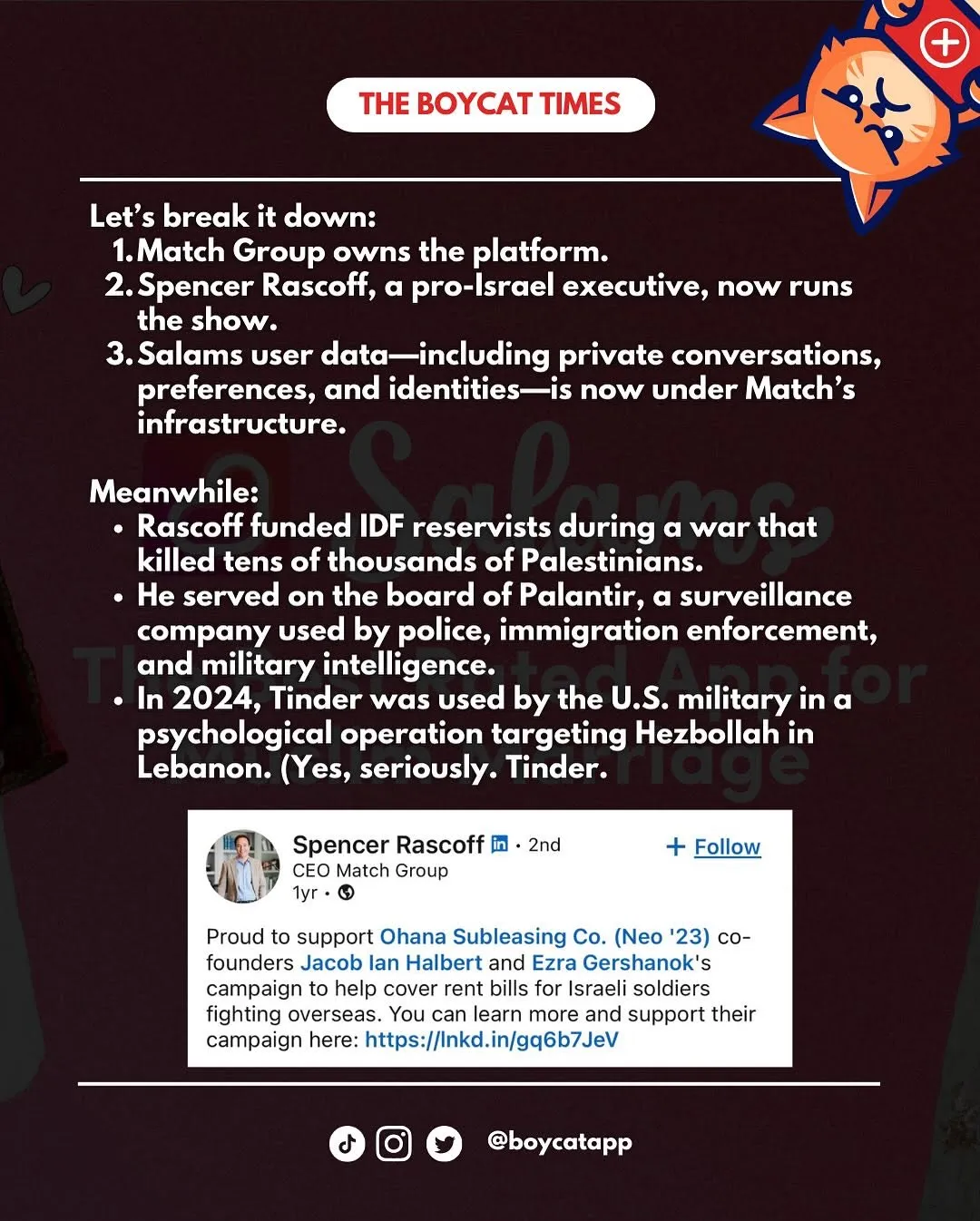2025 marks six years since I embraced the world of polyamory and dating apps (both within a few months of each other). Since then, I’ve become a connoisseur of this means of connection, having probably spent a thousand hours swiping on a full range of apps and been on countless dates. You could call me a poly dating app expert of sorts – I have pretty much tried them all and in a variety of countries, too.
Speaking of travelling, your location considerably influences your experience because the best poly dating app will genuinely depend on where you are. Only one or two options truly have a global reach. During my time exploring polyamorous communities in places like Barcelona, London, Mexico City, Melbourne and Sydney, I have found that most apps are highly specific in both their availability and popularity across certain areas. So, trying a few of the apps listed below is the best way to see which one has the most appeal for polyamorous singles, solos, and couples in your city.
You’ll also notice that many of the dating apps listed below aren’t specifically non-monogamous. Some are fairly mainstream options whose inclusion may come as a surprise. This is because most well-known apps have shifted towards being more inclusive of all relationship styles over the past year or two. This makes sense as a business because polyamorous people are likely to continue using dating apps throughout their lives. It calls into question whether dating apps are even designed for monogamy.
When it comes to app changes, many have undergone a few tweaks in the past year to make them more inclusive (such as the addition of broader gender filtering options, thankfully) or more engaging. One app underwent a notable rebrand during 2024 – Bumble – and that effort went so poorly that it became known as the “Bumble Fumble.” However, over the past few years, things have gone quite disastrously whenever any dating app attempts a complete rebrand. It does make me curious to see how the poly dating app landscape will change in 2025. Will there be a new contender? Will a new update make a particular app stand out from the others? Will the tech change to move us beyond swiping and into meeting more IRL? I suppose we’ll have to wait and see.
Here are the eight best poly dating apps you should try in 2025:

Feeld dating app
No matter where I’ve travelled, the main app I have consistently used is Feeld. When it comes to polyamorous dating, it’s the one that you’ll hear most people recommend and for good reason. It’s specifically for connecting people who have alternative relationship models and sexual preferences. That means you’ll find lots of people who are non-monogamous, kinky and queer on Feeld, which happens to be precisely the type of folks I’m looking for. Despite the potential complications of these various identities and approaches, the app excels at keeping things simple in design and filtering options.
One of my favourite things about Feeld’s design is that you can scroll through people without having to make a final yes/no decision. This feature helps people like me who sometimes want to jump in and see who’s new, without the pressure to make a final decision at that moment. You can mull someone over while looking at others, which other apps don’t allow. Additionally, the new Constellation feature will enable you to connect your profile to multiple partners, lovers, and everyone else in your network.
Aside from being renowned as one of the best polyamorous dating apps, Feeld also has a reputation for being one of the glitchiest. However, since their 2023 rebrand, the company has clearly been working hard to address all its issues and enhance the user experience. So, fingers crossed that 2025 continues to be a good year for everyone on Feeld.
(Full disclosure: I have previously partnered with Feeld for content on this site because I really like this app.)
Pros
- Pretty much every non-monogamous person has been on here at some point
- Simple but attractive design
- Everyone on here is kinky, non-monogamous and/or queer
- You can link your profile with multiple partners (if you want)
Cons
- Known for being quite glitchy (but has definitely been improving)

Grindr dating app
One of my delights in the world of dating/hookup apps last year was realising that there are loads of bisexual men on Grindr. In the past couple of years, this app has stopped marketing itself as specifically for gay men and broadened its scope to include bi, trans, and queer people. However, there’s always been the sense that if you don’t have a factory-installed penis, then you probably wouldn’t be welcome here.
That’s beginning to change, though. Grindr has become more gender-diverse than when I first tried it a few years ago. It also isn’t as intimidating as I first thought it would be. People may be on there looking for a connection just for that day, but they are also open to chatting and going on dates, just like all the other apps. I love that it provides a clear section to report the details of your most recent STI test (other non-monogamous dating apps, take note!). The downside is that people can send you messages without connecting, which means you do have to swerve the odd dick pic. Still, my top tip is not to open anything from a profile that doesn’t have a photo.
Pros
- Enormously popular. Always plenty of people online
- Search for tags like poly, bi and t4t
- Indicate on your profile that you’re partnered
- Space to report your most recent HIV test
Cons
- The free version is limited in terms of who you can view (although that seems to vary depending on which country you’re in)
- Open inbox, which means you may be sent images that you don’t want to see
- Not specifically a poly dating app

Lex community app
Lex is a funny one because it’s not specifically a dating app, but also it is. Having started as a modern take on the personal ads featured in On Our Backs, a women-run erotica magazine from the 1980s and 1990s, Lex is now a text-based community app for anyone who is queer. That means alongside someone advertising their desire for someone to top them, you’ll also have people advertising lesbian parties and trans+ houseshares. Personally, I love this app, and by adding posts about polyamory events and queer parties, I have connected with many like-minded individuals over the past couple of years.
Lex was originally an app for FLINTA+ folks. However, during their 2023 rebrand, they broadened the scope to include queer cis men. This change angered some people, who felt that the app was a rare space for queerness that wasn’t dominated by guys. However, others thought that it made the space feel more welcoming for trans+ guys. One of the nice things about the rebrand has been how they have evolved members’ profiles to include photos and more info about what they are looking for, making it more like a dating app without the pressure to be swiping all the time.
Pros
- More like a community noticeboard for queers
- Lots of non-monogamous folks on there
- Great vibe
Cons
- Not strictly a dating app
- Depending on where you are in the world, it can be very active or completely quiet

#open dating app
As the name suggests, this is an open-relationship dating app, making it one of the most well-known options specifically for polyamorous individuals. #open also stands out for its option to have two profiles – one solo and one partnered – which is excellent for people looking to date in different ways. However, it appears only to allow you to connect with one partner, which won’t always work for those with multiple partners, I imagine. Another interesting aspect of # open’s design is its use of hashtags. Every interest, kink or preference on your profile can be listed as a searchable hashtag, making it easier to find people with similar interests.
I also enjoy two other features of # open’s design: it loops a person’s profile photos, and you can review everyone you previously passed on. The first one is clever because you can quickly swipe through someone’s photos without having to go back to see them again. The second one means you never have to worry about swiping incorrectly. You can always review your left swipes, whether it’s three seconds or three years later. The only real downside to #open is that it doesn’t have many people on it, unlike many of the above apps. However, I strongly recommend checking it out in your area, especially in North America, as it may be more popular there.
(Full disclosure: I previously partnered with #open for content on my Instagram because I like the fact that it’s a non-monogamous dating app.)
Pros
- Exclusively for non-monogamous people
- You can review everyone you previously passed on
- Create a profile with your partner
- Search via hashtags for interests and preferences
Cons
- Less well-known = fewer people
- Can’t reorder profile photos (so new ones are listed last)

Pure dating app
Pure is one of the more interesting non-monogamous dating apps because it appears to be doing something different. The way the app is laid out looks visually different from many of the others listed here, and it positions itself in such a sex-positive way that most people on there appear to be looking for physical connections. I say this after having tried it three times over the years in various countries.
Pure also has interesting graphics and great social media content. But the app itself? I’ve never really understood the design or connected with anyone on there. Perhaps because I’ve never encountered enough people there to find anyone of interest. I support them in creating a hookup app that is open to everyone (like a stylish Grindr for folks of all persuasions), but I haven’t found my groove with it yet. Please note that as of February 2024, this app is no longer available for unrestricted use.
(Full disclosure: Pure gave me a one-month subscription so that I could write about it here.)
Pros
- Very sex-positive
- Trying to do something different
- Engaging visuals in their design
Cons
- Less well-known = fewer people
- Free to download, but requires you to pay a subscription to post an ad (basically, your profile)
- It has an interesting design that doesn’t always make sense. It can be confusing to use

Hey Plura
The concept behind Hey Plura (formerly called Bloom Community) is quite clever. Essentially, it combines a dating app with an events app, similar to Eventbrite or Meetup, but focuses exclusively on the sex-positive community. One of the big selling points of this format is that it allows you to connect with people online before attending an event. This feature is something I’ve had people request since I co-founded ENM Fam London, and it would have been great to direct people to an app like this. I also like that it allows you to connect with people simply as friends, without necessarily implying you’re specifically interested in dating, though that’s an option.
While I have used Hey Plura’s app, I haven’t yet experienced what it’s like, as it has only launched its events feature in some larger US cities. So, while you can use the app anywhere, it currently only lists events for places like San Francisco and New York. However, they have many online events listed if that’s your kind of thing. Definitely worth checking out if you’re looking to grow your polyamorous community in this part of the world.
Pros
- A dating and events app in one
- Focused on the sex-positive community
- Connect with people before you attend an event
Cons
- Available everywhere in theory, but few events are listed outside the US currently
- Less well-known = fewer people.

Bumble dating app
Then there’s Bumble. They didn’t have a great time in 2024 with their misinformed anti-celibacy campaign, which was intended to launch their rebrand. But personally, I’m glad they removed their ‘women make the first move with men’ policy simply because, as a non-binary queer person, I never knew where that placed me. So, their app now has a broader scope, but will it survive without its niche?
Bumble is another dating app where your experience varies by location. However, they now do have the option to indicate ‘What you want from your dates,’ with ethical non-monogamy listed as a feature. Additionally, you can select it alongside other options, such as marriage or intimacy without commitment. You can also search for options like this with a paid account. On a separate note, another feature I’ve enjoyed is the Bumble BFF section for finding new friends while travelling.
Pros
- Feminist ethos (apparently?)
- Everyone I’ve connected with on there has been lovely
Cons
- Not a specifically polyamorous dating app
- The original concept is very heteronormative, even if it has evolved beyond that
Monogamish dating app
This newer dating app for non-monogamous folks appeared on my radar in mid-2023. I don’t have extensive experience with Monogamish, as despite trying it in London, Barcelona, and Mexico City, it never caught on with anyone local to me. However, when I broadened my search to include the US, I saw more people in that region. So, once again, it’s worth checking out if you are in that part of the world.
What about Tinder, Hinge, etc?
IMPORTANT UPDATE: As of February 2025, Match Group, which owns Hinge, OkCupid, Tinder, and (as of May 2025) Her, now has Spencer Rascoff as its CEO, who is openly anti-Palestinian. You can read more about his vocal and financial support of Israel here and below. I strongly recommend that you avoid using them, delete all your existing profiles and information and delete these apps (and any other apps owned by Match Group).

Other polyam dating apps you can try
Of course, there are other options, some specifically for polyamorous people and some more for hookups and kink connections. Below, I’ve listed apps I haven’t tried because they don’t seem right for me, or that I’ve used and then decided not to bother with.
- Alt Playground (US only)
- Beyond Two
- Down
- FetLife (kink dating)
- Flure
- Joyce
- More Than One
- Polyamoris
- PolyFinda (I tried it in Australia and had a really unpleasant experience. Maybe it has improved)
- Scruff (queer dating – primarily gay men)
- Taimi (queer dating – popular with trans+ people)
Pin this blog for later!

Affiliate Disclosure: This blog may contain affiliate links. That means I may earn a small commission if you click on a link and make a purchase. By clicking on an affiliate link, you accept that third-party cookies will be set. These help link the reason for your purchase to my blog. All my recommendations are genuine and are in no way influenced by any advertiser or commercial initiative.







